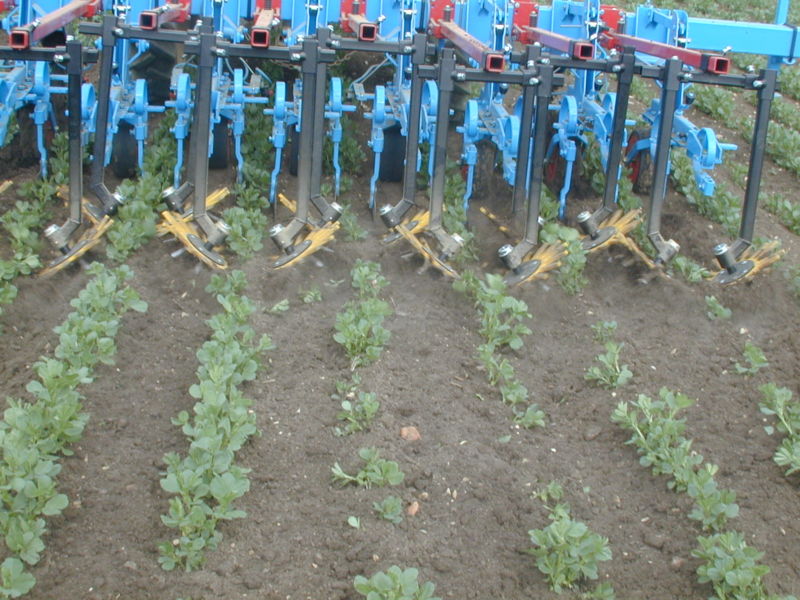
Enlarge / Mechanical weeding is one way to reduce the need for herbicides. (credit: Pascal Farcy / Nature Plants)
You don’t have to be an organic farming advocate to see the value of reducing pesticide use. Modern crops demand expensive inputs of herbicides, fungicides, insecticides, and fertilizers to realize their considerable yields. For their own health, farmers must handle pesticides carefully as they spray them on their land. And inevitably, these chemicals have an effect on organisms beyond the confines of the field. They drift over neighboring habitats, run off into streams, or seep into groundwater. Ecosystems can be harmed, and drinking water can be tainted.
Achieving pesticide reductions is challenging, though. Developing crop varieties that can thrive with lesser inputs, either through genetic modification or other methods, is one promising option. But agricultural research has also developed techniques that should keep pests down and lessen the need for spraying. As a result, this would reduce the risk of pests becoming resistant to chemical pesticides.
All you have to do is convince cash-strapped farmers to stop doing something that works (spraying) in favor of a variety of practices that should work.




